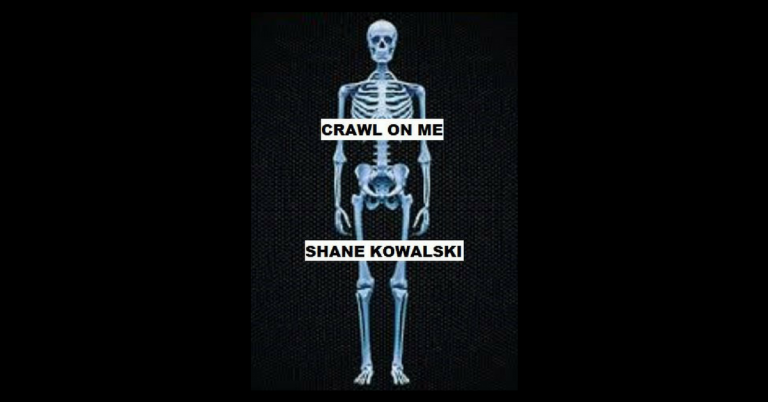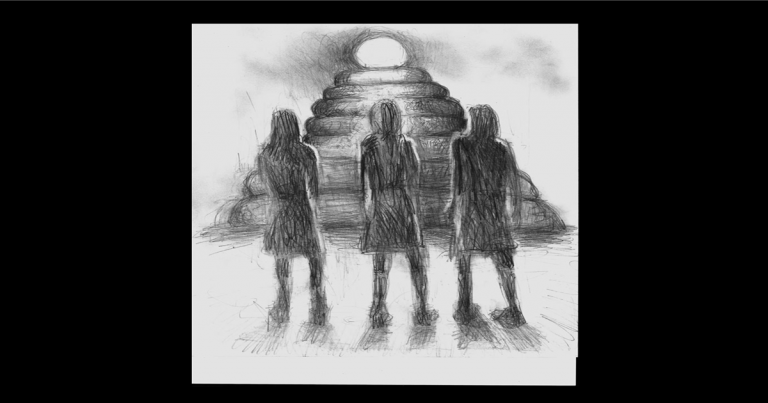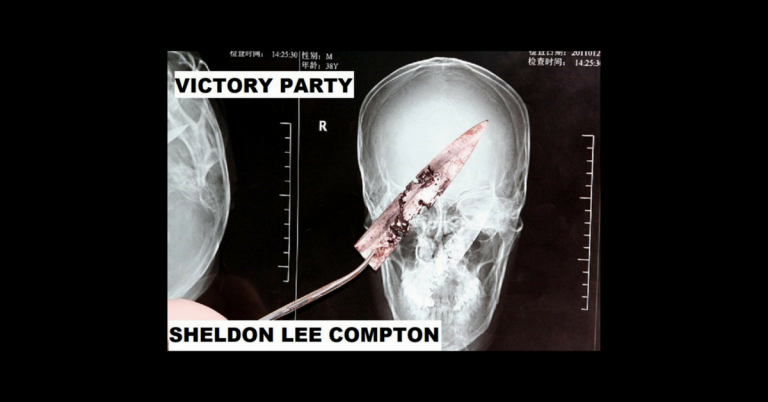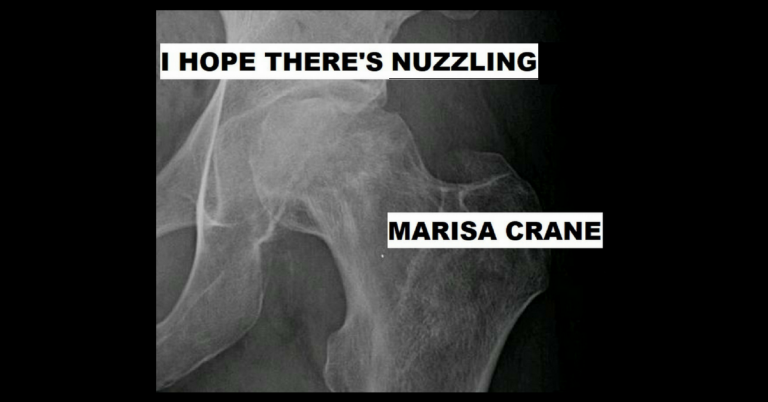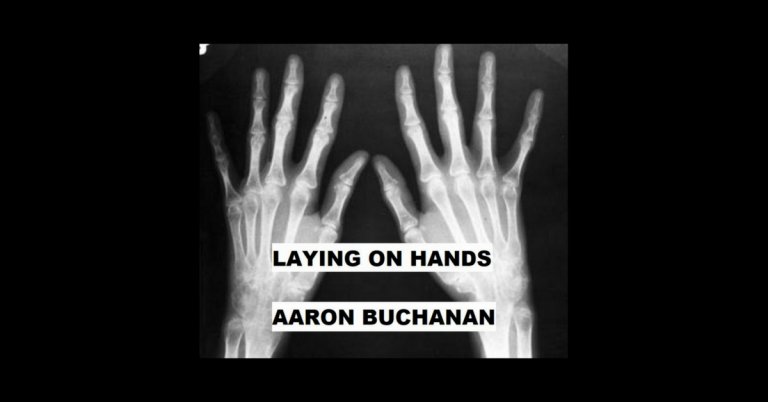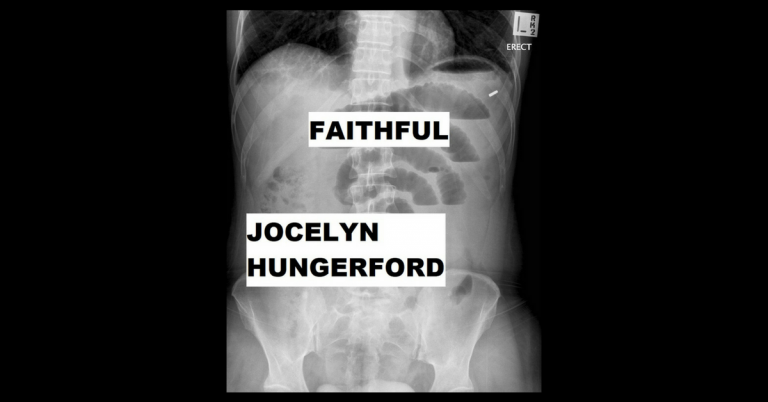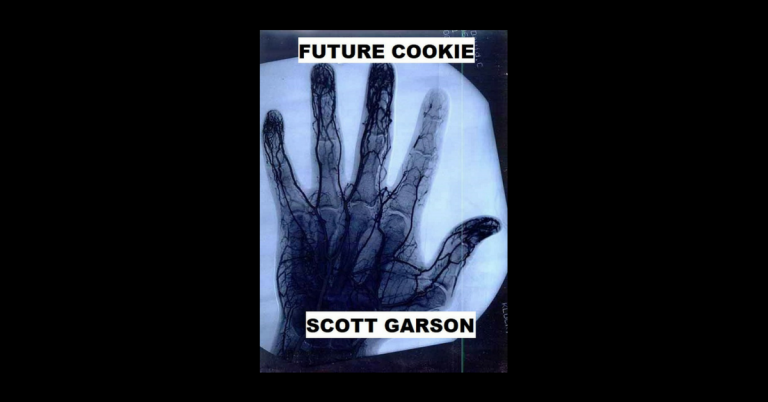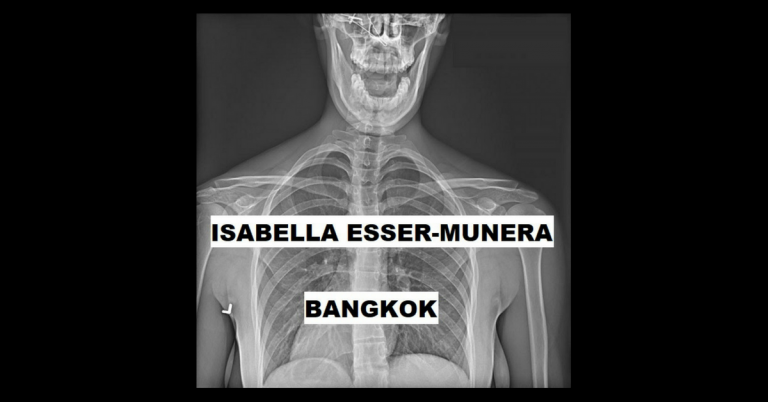
BANGKOK by Isabella Esser-Munera
He begins to paint.
Frescos. No. But layers. Layers.
There are faces. Clouds. He paints feverishly. Time is obsolete. His hand is limitless; it isn’t his. His body; not his. He makes love to himself in paint.
~
It is July 4th and he takes the four pieces that are left from the box in his drawer. He eats them quickly and quickly lays down on his bed.
It is a mat, long and thin.
The room is bare and feels like it is opening. Like a box, as though the walls were slowly falling away by a pulled string. The color white, but something softer than that.
The man is not old. His arms are thin and at his sides. They fold over his chest. He is waiting for something.
Then he gets up, rapidly, like he knows. This is when he begins to paint.
It happens like this:
He left the room, saw two people. More accurately: two people saw him. Face bent, angled, Asian. Sharp hair, sharp features, light cutting across his shoulder. A staircase shadow, sinking down the steps. Cloaked, eclipsed. Harrowed. Gone. He was quick, he did not see them.
It is difficult not to pause, outside the door.
He pauses outside the door.
He is breathing.
What he is breathing: smoke, gasoline, food, other things. More importantly: the building, and their inhabitants. There is color. Flesh.
He walks.
Swiftly, anonymous. Like everyone else. It is fascinating. He thinks this to himself: fascinating. Escape: into, onto—others. There is color, there is flesh.
He hears it: gently, twinkling like a lullaby. Not the cart, the infinite piles of avocados. Not the man, woman, child. A pruned face giving way to a smooth one. Not the multitude of flashing eyes: lecherous, tired, pleading, bored. The twinkling, silver drums.
He sees them: ten thousand silver, pure, thin-sheet-silver metal drums. Tiny porcelain dolls, robots, playing on the drums. A long line like dominos. They are drumming their nails.
There. A window like a fish tank. It is glowing. He feels it, there, in his chest. His ribs are plastic. They are bowing out. He feels bigger. His heart overflowing. He walks into the store.
Things are slow and up close.
Or maybe no.
In the store there is color.
No flesh.
Color. Brilliant, saturated, blossoming.
He feels it in waves of texture. He breathes, dizzy. So much. The paint lined against the walls like dominos.
A small windmill outside the door spins, is singing.
It sounds like an angel.
He wants the color. He swallows it, standing there. It is not enough. He wants more. His ribs are plastic. Burst into arms. Reach out. His heart is bigger. Overflowing. Dribbling to the floor. Drooling.
He wants the color like a lover. Like water. It is not enough, standing there.
He steals the paint.
All of it.
There are no cameras. He fills his pockets, his pants, his hoodie. Mechanical. He is a robot.
He leaves the store.
He does not stop outside the door.
The flesh surrounds him. A wall.
Get through.
He moves. The flesh surrounds him, parts.
He is swelling. He is peeing. He is fine.
Back in his room.
His room is a box. He never noticed before.
Sweating, sweating. Sweaty. He peels off the navy hoodie with his thin, pale arms; the white, wet shirt. So much white. Sticky. Sweat on his forehead, clinging black hair. He lets out a moan. Unintentional. Glass is falling to the floor. Nothing breaks. There are no cameras. He breaks.
There is color.
White.
He is in a city that does not celebrate July 4th.
He begins to paint.
He does not have a brush. He does not find it until later.
He uses his ribs. His thin arms. His tongue. His penis. He lets out a groan. Unintentional. He is masturbating, he is naked.
Writhing.
There is color, there is flesh, he moans.
He holds up his hands.
They shake. Some asshole called them feminine once. Against the light they are snowflakes. His face is wet. So is his body, so. He looks at them, slender, plastic bones. He wants to bite them. He doesn’t. He looks. Snowflakes.
His cheeks are high and spread across his face like dove’s wings. Dovetailing down: his sharp chin. Like his mother. The blinking eyes which close, curtain. The hair, flattened back in odd angles.
His mother with her face over the bowl of soup.
As if it were a round pocket mirror, propped up, the reflections doubled, split down the spine like a horizon line, one face on the table, one face floating above it. A stillness in the morning, with the feeble light filtering through.
It caught her eyes, set them glowing. The house filled with stillness, cold light.
Her skin was pale and as thin as moth’s wings. Raising her eyes, over the bowl, over breakfast, she was all light, he said nothing. And at the seam where her faces met, the clasp, her chin an arrow pointing in—a necklace dangled, the one his father gave her.
His father is in the United States of America, Long Beach Island now. He could be his younger brother instead of his son, if. His elder sister, glamorously sprawled on the couch with a magazine, smirking, “When you get there, what’re you going to do? Make art? Fuck men? Huh? Fuck men and get high? Go, faggot. Go like your fucking dad.” Her legs scissoring over the couch, cupping a cushion like two fingers the plush meat of a cigarrete. I can’t, fuck, those. Kinds of hips, white as the sky.
The downturned navy hoodie, she would remember, flattened down in the middle like his nose, his sister thought, as he left. As he left he lifted it over his head with pale, thin fingers. Like a cloak, a curtain, closing, edging down, and with a hiss, sweeping the cloth over the floor.
His eyes are closed.
Making love to himself in the paint.
There are cameras. They are like mirrors. They are like eyes. His room is a box, he is sure. He is sure there are cameras. He is on a stage, there are floodlights, the opening magician’s act, he will saw himself apart, his bones will oblige.
He paints with his body, the white white room.
Finds a toothbrush.
He is going to paint a fresco.
No. But there are faces. Clouds.
He is determined, so he paints. He paints frantically. He is in a city that does not celebrate Independence. Independence Day. There is color. He makes, bleeds, cries color. There is no flesh. He paints. He will find a lover. He will come home. He will not come home. He will not find a lover. He might be crying. There is color.

